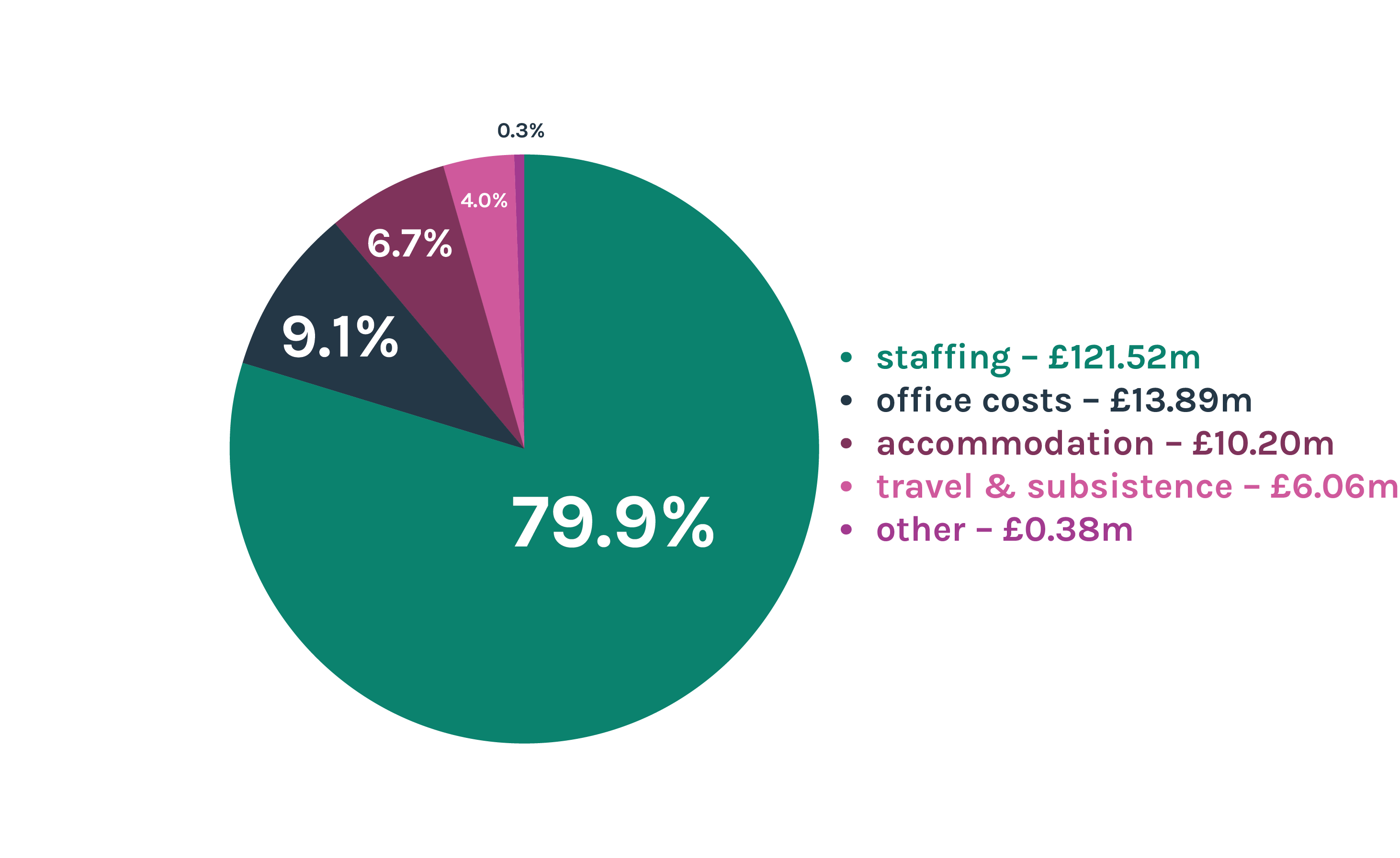IPSA’s role and responsibilities
Date published: 18 January 2024

At IPSA, we receive many questions about the extent of our role and responsibilities.
IPSA was established by the Parliamentary Standards Act 2009. We are responsible for setting, administering, and regulating MPs’ pay and business costs. We work independently of both Parliament and government with powers to fulfil our responsibilities.
Other agencies working within political standards include the Parliamentary Commissioner for Standards, the Committee on Standards in Public Life, and the Electoral Commission.
Each agency has a clear remit. We work alongside each to govern specific elements of standards in public life.
What IPSA does
IPSA:
sets MPs’ pay and budgets
validates MPs’ claims
publishes data about MPs’ claims and business costs
MPs’ pay and budgets
We have a legal responsibility to review MPs’ pay in the first year of each new Parliament and make any appropriate changes.
We think it is correct that MPs are paid fairly in relation to the level of responsibility they have, and the work they do helping their constituents.
The Scheme of MPs’ Staffing and Business Costs (“the Scheme”), sets out the rules and budgets available to all MPs.
Our data shows that most MPs’ business costs are used to pay salaries for staff members to help them support their constituents.

On average, MPs employ the equivalent of five full-time members of staff to respond to requests from local people, resolve issues and help to represent their needs in Parliament, spending between MPs varies.
For more information, visit Why does MPs' spending vary so much?
Validating MPs claims
We employ a dedicated team to review MPs’ business costs to check claims are within the rules and are adequately evidenced.
All claims must be compliant with the Scheme.
We have a three-stage validation process to regulate MPs’ spending.
To learn more about how we regulate, visit How do we safeguard public money?
At the end of each financial year, our year-end process ensures MPs have stayed within budget or calculates whether they need to repay money to us. This process also helps to ensure that MPs’ spending is accounted for in line with public sector rules.
Publishing MP’s claims and business costs
As an independent regulator, we must build trust with the public and assure them that taxpayer money is being spent responsibly.
We publish MPs’ business costs data every two months on our website. This includes all claims – whether paid, repaid, or unpaid.
Each year we publish the total amount each MP has spent during the year in each category including salaries and other costs not included in the data we publish every two months.
This gives the public, interest groups and the media an opportunity to scrutinise how MPs use public money.
We recently published the total business costs incurred by MPs in the 2021-22 financial year.
For more information, visit MPs’ staffing and business costs.
What IPSA doesn’t do
IPSA doesn’t:
regulate MPs’ conduct
govern the Seven Principles of Public Life
regulate political funding
regulate the Ministerial Code
govern standards in UK politics
MPs’ conduct
We are an independent body working within the parliamentary standards sector but we don’t regulate MPs’ behaviour.
The House of Commons Code of Conduct sets the standards of behaviour expected of MPs as they carry out their work.
The Parliamentary Commissioner for Standards is an independent office within the House of Commons and is responsible for investigating alleged breaches of the House of Commons Code of Conduct.
The Register of Members’ Financial Interests
The Parliamentary Commissioner for Standards manages the Register of Members' Financial Interests.
MPs must provide information about their financial interests and any benefits they receive that others may reasonably consider influencing their actions or words.
The Parliamentary Commissioner for Standards maintains the Register.
It is updated fortnightly online when the House is sitting, and less frequently at other times.
Interests remain on the Register for 12 months after they have expired.
The Seven Principles of Public Life
The Seven Principles of Public Life – selflessness, integrity, objectivity, accountability, openness, honesty and leadership – are the ethical standards those working in the public sector are expected to adhere to.
They were first set out by Lord Nolan in 1995 in the first report of the Committee on Standards in Public Life.
The Committee on Standards in Public Life is independent and advises the Prime Minister on arrangements for upholding ethical standards of conduct across public life in England.
The Committee is not a regulator and cannot investigate individual complaints.
Political funding
We do not provide funding for campaigning, or any party-political work carried out by MPs – therefore we don’t regulate political funding.
This is undertaken by the Electoral Commission – the independent body that oversees elections and regulates political finance in the UK.
They provide guidance to political parties and people standing in elections and monitor the donations political parties, campaigners and other groups receive, and how the money is spent.
The Ministerial Code
Similar to the MPs’ Code of Conduct, we are not involved in setting or regulating the standards of conduct expected of ministers and how they discharge their duties.
Adherence to the Ministerial Code is managed by the Cabinet Office.
UK political standards
We are one of many agencies involved in protecting standards within UK politics.
It is important for UK democracy that politicians and Parliament are held to the highest standard to ensure we operate with integrity and so the public can have trust and confidence in how the political system works.
For further information about IPSA’s role, visit IPSA and democracy.